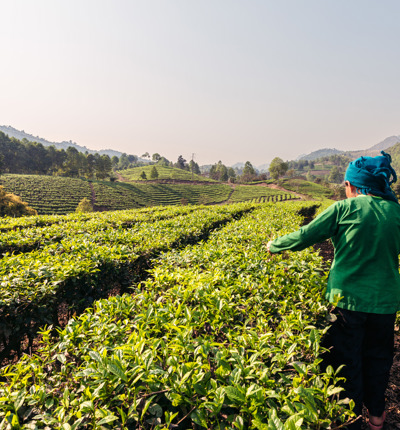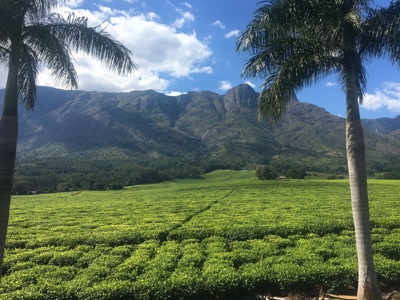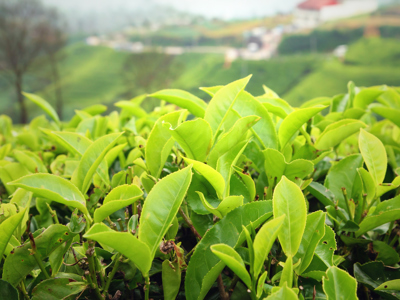
Gender and sexual violence claims
Contact our specialist team of lawyers today
Leigh Day represents individuals around the world who have been subjected to Gender-Based Violence (“GBV”) and sexual abuse. Women and children are especially vulnerable to exploitation within their communities, and human rights violations against them are sadly prevalent across many countries and industries.
In many industries, the potential for abuse is structurally caused by a combination of discriminatory power structures and weak HR systems (for example, a lack of policy, no training, and no effective grievance mechanisms). These problems are particularly well-documented in the agricultural sector (in commodities such as tea, flowers, coffee, vegetables, and fruit) and also in the garment industry.
Leigh Day has acted for women who have been subjected to gender-based violence in the course of their employment on plantations and within their communities. We have also represented the survivors of trafficking and sex tourism.
How Leigh Day can help
Our specialist team of international abuse lawyers is committed to obtaining justice for survivors of sexual harassment, gender-based violence, femicide (murder) and child abuse. We are passionate about putting survivors of abuse at the centre of the legal process and ensuring that their voices are heard.
Our clients have experienced gender-based violence in many forms, from verbal sexual harassment and economic exploitation to sexual assault and rape. We also represent the family members of women who have been killed as a result of sexual and gender-based violence.
Many of our clients recognise that the abuse they have suffered is the result of deep-rooted and systemic power imbalances, and often, they want to achieve justice not only for themselves but also for their colleagues and wider communities. Through ground-breaking settlements, Leigh Day’s team of lawyers have been able to negotiate compensation packages that award our clients the financial means to rebuild their lives but also involve multinational companies putting in place preventative measures to stop similar abuses from happening in future and empower women in their workforces and surrounding communities. Such measures would not be achievable through the court process and demonstrate the benefits that a collaborative approach to litigation can bring to all parties.
Sexual harassment and abuse on plantations
Leigh Day has successfully represented several Malawian women in relation to claims for compensation arising out of serious allegations of sexual assaults and/or sexual harassment sustained in the course of their employment at tea and nut plantations owned by British companies in Southern Malawi.
However, as evidenced by a recent BBC Panorama investigation, which uncovered sexual abuse and exploitation on tea farms owned by British companies in Kericho, Kenya, this is not an issue that is limited to Malawi. The risk of rape, sexual abuse and harassment of women working on plantations worldwide is longstanding and well-documented.
There is indeed a systemic problem of male workers at plantations abusing their positions of power in relation to the women working under their supervision. This abuse of power often takes the form of rape, sexual assault, sexual harassment, sexual coercion and discriminatory behaviour.
This is because the features of plantation work, which, for the most part, involves unskilled labouring work, often performed alone in the fields, render female workers particularly vulnerable to sexual violence and discrimination.
The temporary and informal nature of the work creates a power imbalance between employers and employees, which can easily be abused by male supervisors. In addition, inadequate and ineffective grievance mechanisms mean that victims of sexual violence at work are often left with no remedies.
Camellia Group/Eastern Produce Malawi Ltd
Leigh Day represented 36 Malawian women who alleged that they experienced GBV (including, in some cases, rape) and sexual harassment during their work on tea estates in the Mulanje and Thyolo districts of Malawi while employed by Eastern Produce Malawi Ltd "EPM", an indirect subsidiary of Camellia plc.
These claims were issued in the High Court in London on 31 October 2019 against Camellia Plc, Linton Park Plc, Robertson Bois Dickson Anderson Limited, and "the English Defendants" and EPM.
In February 2021, Leigh Day agreed to settle all claims against EPM and the English defendants brought by these women.
An innovative settlement of the claims was agreed upon between the parties, which included compensation for the claimants and the establishment of several measures designed to improve the safety and security of EPM's female employees and improve conditions for women in the wider community. These measures include a Women's Empowerment Initiative, which will fund projects to enhance women and girls' skills, employment opportunities, and educational attainment in and around EPM's operations.
These projects include EPM Gender Equality Scholarships for 10 women, comprising guaranteed tuition and living costs throughout an undergraduate degree/other higher education course in Malawi; a specialist female leadership training programme to support the career progression of women into more senior positions at EPM; funding community civic education programmes concentrating on Sexual Harassment and Gender Equality; relocating and upgrading primary school facilities to include a community meeting hall; building and maintaining boreholes in locations designed to benefit women and children locally to EPM's estates; establishing three new Victim Support Units at local police units.
Consultations are to be held with stakeholders, including women working and living in and around EPM, to ensure these projects have maximum impact. EPM has engaged a consultant to monitor, guide, and oversee, independently, its Women's Empowerment Initiative.
In addition, EPM has agreed to change its working practices to improve the safety and working conditions of women on its estates. These include installing cameras at key locations, providing personal attack alarms, and creating a new role of "Women's Safeguarding Officer." EPM will also provide an enhanced training programme for women to encourage them to progress into supervisory and management positions.
Importantly, Eastern Produce Malawi has established an independently monitored Operational-level Grievance Mechanism to ensure that any individual who wishes to raise a grievance regarding gender-based violence and/or sexual harassment at its operations can obtain an appropriate remedy promptly. The Mechanism will be overseen by international experts.
PGI Group Ltd/Lujeri Tea Estates
Leigh Day represented 31 Malawian women in a claim against PGI Group Limited ("PGI"), whom they hold responsible for not taking adequate steps to prevent the sexual abuse – including rape – to which they were subjected during the course of their employment at Lujeri Tea Estates Limited ("Lujeri"), a PGI subsidiary.
The claim was issued in the High Court in London on 31 October 2019 (Magret Thomas & Ors v PGI Group Ltd).
Lujeri supplies some of the UK's most well-known tea brands, such as PG Tips, Tetley and Yorkshire Tea, as well as a number of Britain's biggest supermarkets, including Waitrose, Marks & Spencer, Tesco and Sainsbury's, for their own-brand tea.
In March 2021, a Sunday Times investigation revealed that "under pressure from the buyers", Lujeri had commissioned Impactt, an ethical trade consultancy, to investigate allegations of sexual abuse on the estate. According to the Sunday Times report, "the findings were damning", and Lujeri and Impactt have produced a list of proposals for change, including: "victim support and counselling; creating a confidential, free helpline for employees; improving grievance mechanisms; and a recruitment drive to find female talent."
At around the same time as the Sunday Times investigation, Lujeri's Rainforest Alliance accreditation was suspended, as a result of unannounced investigation audits, which found various areas of non-compliance against the relevant Rainforest Alliance standards, including sexual harassment. It was reinstated in October 2021.
The case was settled out of court on a confidential basis without admission of liability.
Unilever Plc
Leigh Day is currently acting on behalf of 79 Kenyan women who allege that they have experienced sexual harassment and gender-based violence (including sexual assault and, in some cases, rape) during the course of their employment on Kenyan tea estates owned at the time by Unilever plc.
On 29 September 2023, legal proceedings were issued against Unilever Plc in the High Court in London. The claims are brought in negligence on the basis that there was a clear and systematic problem of sexual harassment and gender-based on the tea estates and that Unilever Plc, as the parent company, owed the claimants a duty of care to take all reasonable steps to prevent them from being subjected to sexual mistreatment.
Leigh Day is pleased to confirm that the parties have entered into a confidential settlement agreement, pursuant to which they have agreed to settle the claims.
Meet the gender and sexual violence claims team
Gender and sexual violence cases

Women claim systemic sex abuse on tea plantations owned by British brand suppliers
Women who work on southern Malawi plantations that supply well known tea brands are suing their employer Lujeri and its British parent company PGI over allegations of systemic sexual harassment including rape, assault and discrimination.
International child abuse claims
Our specialist team of abuse lawyers has extensive experience in bringing claims for children abused overseas.



